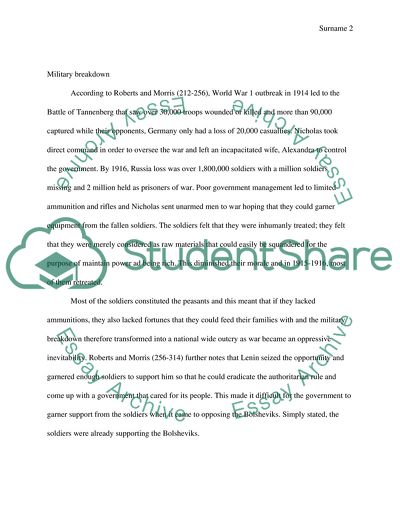Cite this document
(Why Were the Bolsheviks Able to Seize and Retain Power in Russia Coursework, n.d.)
Why Were the Bolsheviks Able to Seize and Retain Power in Russia Coursework. Retrieved from https://studentshare.org/history/1753043-why-were-the-bolsheviks-able-to-seize-and-retain-power-in-russia-while-the-revolutionary-left-in-post-war-germany-failed-to-do-so
Why Were the Bolsheviks Able to Seize and Retain Power in Russia Coursework. Retrieved from https://studentshare.org/history/1753043-why-were-the-bolsheviks-able-to-seize-and-retain-power-in-russia-while-the-revolutionary-left-in-post-war-germany-failed-to-do-so
(Why Were the Bolsheviks Able to Seize and Retain Power in Russia Coursework)
Why Were the Bolsheviks Able to Seize and Retain Power in Russia Coursework. https://studentshare.org/history/1753043-why-were-the-bolsheviks-able-to-seize-and-retain-power-in-russia-while-the-revolutionary-left-in-post-war-germany-failed-to-do-so.
Why Were the Bolsheviks Able to Seize and Retain Power in Russia Coursework. https://studentshare.org/history/1753043-why-were-the-bolsheviks-able-to-seize-and-retain-power-in-russia-while-the-revolutionary-left-in-post-war-germany-failed-to-do-so.
“Why Were the Bolsheviks Able to Seize and Retain Power in Russia Coursework”. https://studentshare.org/history/1753043-why-were-the-bolsheviks-able-to-seize-and-retain-power-in-russia-while-the-revolutionary-left-in-post-war-germany-failed-to-do-so.


